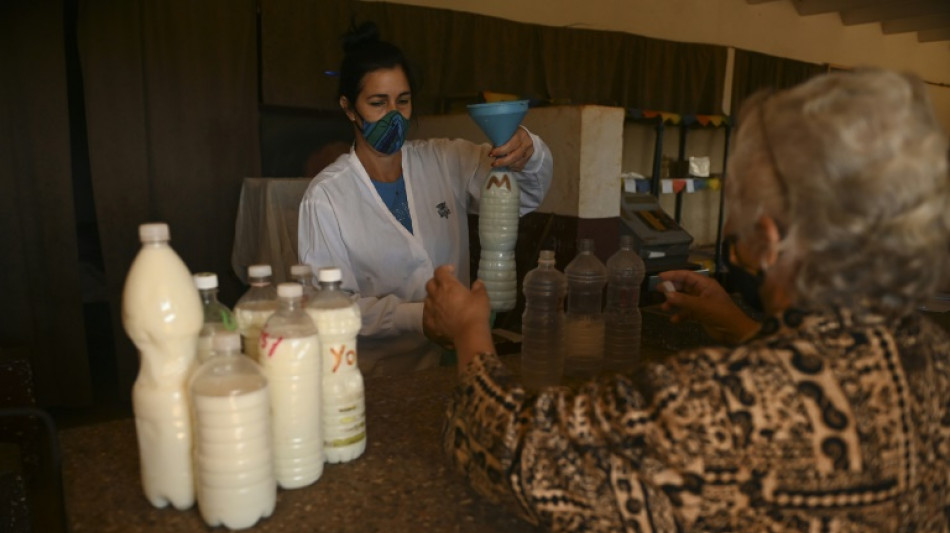
-
 Microsoft raises Xbox prices globally, following Sony
Microsoft raises Xbox prices globally, following Sony
-
US stocks rise on Meta, Microsoft ahead of key labor data
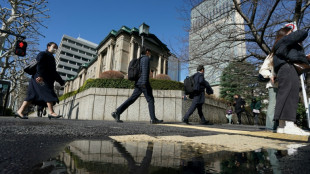
-
 Toulouse injuries mount as Ramos doubtful for Champions Cup semi
Toulouse injuries mount as Ramos doubtful for Champions Cup semi
-
Guardiola glad of Rodri return but uncertain if he'll play in FA Cup final

-
 Ruud sails past Medvedev into Madrid Open semis
Ruud sails past Medvedev into Madrid Open semis
-
'Not a commodity': UN staff rally over deep cuts
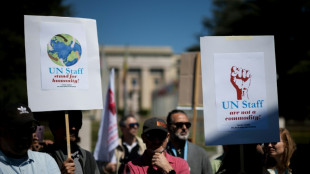
-
 Flintoff proud as Afghan refugee protege plays for Lancashire second team
Flintoff proud as Afghan refugee protege plays for Lancashire second team
-
Peruvian cardinal accused of abuse challenges late pope's sanction
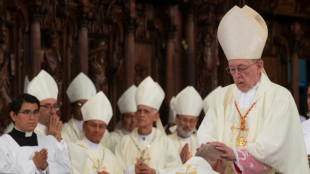
-
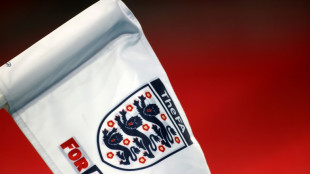 Trans women barred from women's football by English, Scottish FAs
Trans women barred from women's football by English, Scottish FAs
-
Oil prices drop, stocks diverge amid economic growth fears
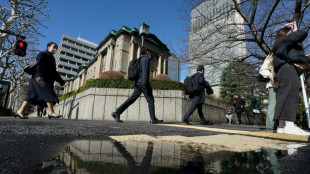
-
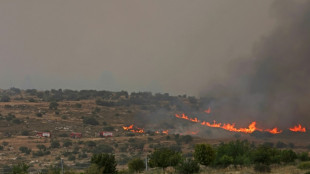 Israel brings fire near Jerusalem 'under control', reopens roads
Israel brings fire near Jerusalem 'under control', reopens roads
-
Lopetegui appointed coach of Qatar

-
 UK counter-terrorism unit probes rappers Kneecap but music stars back band
UK counter-terrorism unit probes rappers Kneecap but music stars back band
-
Yamal heroics preserve Barca Champions League final dream

-
 2026 T20 World Cup 'biggest women's cricket event in England' - ECB
2026 T20 World Cup 'biggest women's cricket event in England' - ECB
-
Bangladesh begins three days of mass political rallies
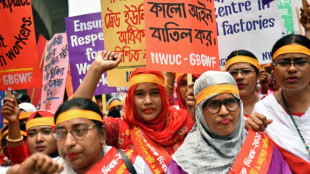
-
 Children learn emergency drills as Kashmir tensions rise
Children learn emergency drills as Kashmir tensions rise
-
Millions of children to suffer from Trump aid cuts
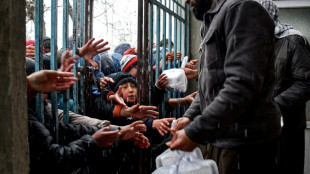
-
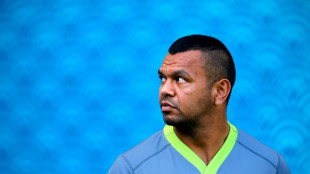 Veteran Wallaby Beale set for long-awaited injury return
Veteran Wallaby Beale set for long-awaited injury return
-
Syria's Druze take up arms to defend their town against Islamists

-
 Tesla sales plunge further in France, down 59% in April
Tesla sales plunge further in France, down 59% in April
-
US calls on India and Pakistan to 'de-escalate'

-
 Israel reopens key roads as firefighters battle blaze
Israel reopens key roads as firefighters battle blaze
-
Europe far-right surge masks divisions

-
 James will mull NBA future after Lakers playoff exit
James will mull NBA future after Lakers playoff exit
-
Ukraine's chief rabbi sings plea to Trump to side with Kyiv

-
 Australian mushroom meal victim 'hunched' in pain, court hears
Australian mushroom meal victim 'hunched' in pain, court hears
-
Lakers dumped out of playoffs by Wolves, Rockets rout Warriors

-
 Booming tourism and climate change threaten Albania's coast
Booming tourism and climate change threaten Albania's coast
-
US reaching out to China for tariff talks: Beijing state media

-
 Tariffs prompt Bank of Japan to lower growth forecasts
Tariffs prompt Bank of Japan to lower growth forecasts
-
Kiss faces little time to set Wallabies on path to home World Cup glory

-
 Serbian students, unions join forces for anti-corruption protest
Serbian students, unions join forces for anti-corruption protest
-
Slow and easily beaten -- Messi's Miami project risks global embarrassment

-
 Fan in hospital after falling to field at Pirates game
Fan in hospital after falling to field at Pirates game
-
Nuclear power sparks Australian election battle

-
 Tokyo stocks rise as BoJ holds rates steady
Tokyo stocks rise as BoJ holds rates steady
-
Bank of Japan holds rates, lowers growth forecasts

-
 'Sleeping giants' Bordeaux-Begles awaken before Champions Cup semis
'Sleeping giants' Bordeaux-Begles awaken before Champions Cup semis
-
Napoli eye Scudetto as Inter hope for post-Barca bounce-back

-
 Germany's 'absolutely insane' second tier rivalling Europe's best
Germany's 'absolutely insane' second tier rivalling Europe's best
-
PSG minds on Arsenal return as French clubs scrap for Champions League places

-
 UK WWII veteran remembers joy of war's end, 80 years on
UK WWII veteran remembers joy of war's end, 80 years on
-
Myanmar junta lets post-quake truce expire

-
 Rockets romp past Warriors to extend NBA playoff series
Rockets romp past Warriors to extend NBA playoff series
-
Messi, Inter Miami CONCACAF Cup dream over as Vancouver advance

-
 UN body warns over Trump's deep-sea mining order
UN body warns over Trump's deep-sea mining order
-
UK local elections test big two parties

-
 US judge says Apple defied order in App Store case
US judge says Apple defied order in App Store case
-
Seventeen years later, Brood XIV cicadas emerge in US


Cuba runs out of milk, breaking Castro's promise
In the early days of communism in Cuba, Fidel Castro had pledged that every child under seven would have a liter of subsidized milk every day.
For some time, they did -- but today, many go without.
To circumvent the US embargo against Cuba and lagging domestic production, milk has to come from the other side of the world in an obstacle race that deprives many on the island of the staple.
Regla Caridad Zayas, a 59-year-old diabetic, said the milk powder that the Cuban state supplies monthly to her and others with special dietary needs dried up months ago.
She is supposed to get a kilo of powder, which makes 10 liters (2.6 gallons) of milk, every month.
Sitting at a rickety table from which she sells coffee outside her house, Zayas said the bodegas, or subsidized food stores, no longer carry the commodity.
In the supermarket, it is also nigh impossible to find: milk has become the latest casualty in a long history of chronic food shortages in Cuba, which on Monday marks six decades of US sanctions.
And it will continue to be in short supply in Havana and four other provinces, due to a lack of "financing, boats and suppliers," Internal Trade Minister Betsy Diaz said in October.
To find milk powder, Cuba looks all the way to New Zealand -- its main supplier with 18,470 tons in 2020 -- as well as Belgium (6,628 tons) and Uruguay (3,695 tons), according to specialized export and import data site Trade Map.
- Containers stuck -
Official Cuban data shows that the island produced 455 million kilograms of fresh milk in 2020, far short of what it needs.
According to the PanAmerican Dairy Federation, each person should have access to 150 liters of milk per year -- some 1.6 billion liters, and about the same in kilograms, for Cuba's 11.2 million inhabitants.
The cheapest and easiest would be to get the milk from the United States -- one of the world's largest exporters and less than 200 kilometers (124 miles) from Cuba's coastline.
Since 2000, food products have been excluded from the US embargo on trade with Havana. But Cuba must pay cash and in advance -- onerous conditions for a country in deep economic crisis, with little foreign exchange and no access to loans.
Getting products from the other side of the planet is not easy, either: more than 10,000 containers of food and other products were stuck last month in ports around the world due to pandemic supply chain issues, the government said.
For decades, revolutionary leader-turned-president Fidel Castro made a point of supplying cheap, subsidized milk to all children under the age of seven and people with chronic diseases.
His brother and successor Raul proposed in 2007 to go even further by "producing milk so that all those who want to drink a glass of milk can do it."
But today, even the guaranteed monthly ration of three kilos of powdered milk for children is running out. For other recipients such as Zayas, there is none.
- Milk was 'sacrosanct' -
"Truly, everything is disappearing," said Claudia Coronado, a 29-year-old mother of two children aged three and seven, while standing in one of Havana's ubiquitous food queues.
"We were used to not having chicken for a month, but milk, that was always sacrosanct."
"I have a daughter of eight, she's no longer getting milk," said Jenny Mora, 29, who said she often has no choice but to turn to the black market and pay exorbitant prices.
The store outside of which the two women are queuing only accepts foreign currency -- itself also only available on the parallel market.
A sachet of one kilogram (two pounds) of milk powder costs $6.30 -- a fortune in a country where the average monthly salary is $163.
Economist Omar Everleny Perez said that without government help, it was more profitable for farmers to sell their product on the black market.
- Lean cow, low yield -
Farmer Domingo Diaz, 79, blames the US embargo for "about 90 percent" of the milk shortage.
He blames the communist government for the rest.
Though it raised the purchase price to help producers, the government did nothing to secure access to cow feed, he said.
Undernourished, the animals produce very little.
"The milk problem affects everyone, it drives me mad, too," said Diaz, as he tried to squeeze milk from a lean beast.
Y.Aukaiv--AMWN